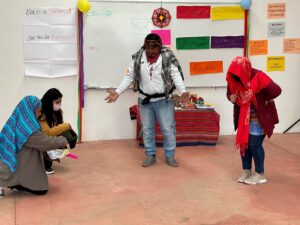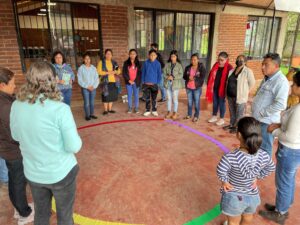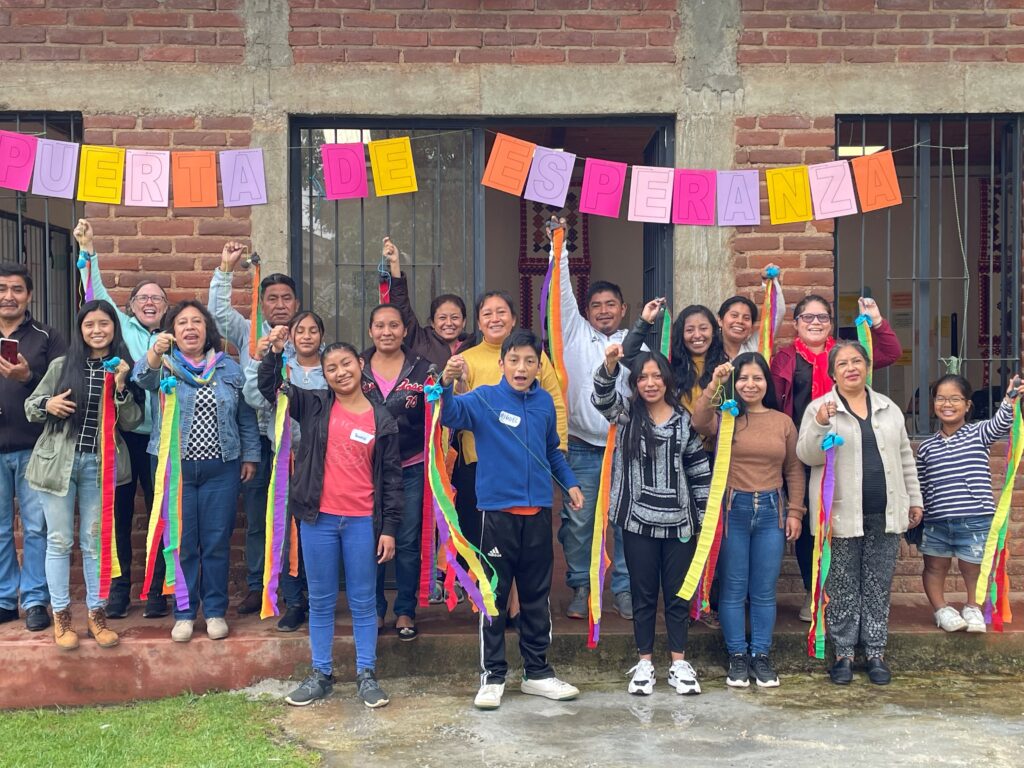“Hope” in San Cristobal de las Casas
By Rev. Richard Oberle

Working with The Institute for Intercultural Studies and Research in San Cristobal de las Casas, Chiapas, Mexico, the word “Esperanza” comes up frequently in workshops and presentations.
“Esperanza” in Spanish means “Hope.”
In a culture where a history of oppression from multiple sources has fractured the very idea of community, The Institute, one of our Global Missions Partners, is a beacon of Hope. “Esperanza” for the people of Chiapas.
I am spending a month of my three-month Pastoral Sabbatical living in San Cristobal de las Casas, working with The Institute, helping to facilitate workshops among other duties. I came to San Cristobal in an effort to pluck myself out of my daily routine and immerse myself in a culture very different than my own; a culture where I could learn and reflect, reconnect spiritually, and embrace cultural dynamics from a very different standpoint.
I have come to the right place.
Daily, I walk to the marketplace, to The Institute, and to churches. Walking has become the beat of my life as I immerse myself in the culture. As I walk, I observe; and everywhere I look, I see hope.
The Church of Guadalupe is high on a hill, overlooking the Guadalupe barrio where I live. When I walk up the 80 steps to the building, I find members of the indigenous community inside, praying for guidance, communicating closely with God. Their faces reflect the hope that their faith has instilled within them.
On other occasions, I walk to the Church of Santo Domingo, a building 400 years old with ancient pews and gold leaf adorning the walls. I sit in the nave, reconnecting with God. As I do, I am joined in community with others from the indigenous community, also communing with God. The look on their faces is not one of people skeptical of religion nor starry-eyed by a megalomanic preacher, the look on their faces genuine faith; is a look of hope.
Another church I frequent is the Church of the Transfiguration; a smaller parish on the north side of town. Their chancel and precepts all contain images of Jesus transfigured on the mountain with Moses and Elijah, Peter, James and John. They find hope in God’s message to the assemblage that day; “This is my Son, the beloved. Listen to him!”

The Institute, our Global Missions Partner, helps facilitate hope through the workshops they offer; from sustainable living initiatives to reforestation to recovering from trauma and healing the heart. All of these and other programs offered by The Institute bring healing, health and hope to the participants. It is an infectious hope, as participants bring it back to their communities and share it with their people. The Institute trains folx to be trainers, prepares participants to be leaders. Hope shared is hope multiplied; and communities in Chiapas are changed as The Institute nurtures their already-present seeds of hope.
The Institute is served by Elena Huegel, our Global Ministries Mission Co-Worker in San Cristobal de las Casas, Chiapas. I helped her facilitate a recent workshop, “Esperanza en el Trauma” (Hope in the midst of Trauma). In this workshop, Elena taught the participants about resilience, the capacity to recuperate and thrive despite adversity. She taught them techniques to build resilience, restore dignity, and to address somatic memory issues related to trauma. The participants left with tools not only to nurture hope in the midst of their own trauma, but to be nurturers of others as well.
Nurturing hope in the midst of trauma is the work of our mission partners at The Institute distilled to its purest essence. For me, participating in this healing ministry for a month of my Pastoral Sabbatical has been a transformative experience. When I return from Sabbatical, refreshed and renewed, I anticipate my ministry to be forever enhanced by the time I have spent immersed in this culture.
My thanks to Global Ministries, The Institute for Intercultural Studies and Research in San Cristobal de las Casas, and Elena Huegel, our Mission Co-Worker for helping me facilitate this transformative Pastoral Sabbatical and for allowing me to participate in opportunities to spread God’s message of Esperanza.

